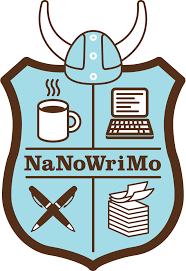You have a goal to write a novel. Perhaps you want to do so in one month’s time. You are pumped and ready to go. You sit down at your keyboard and
You got it, nothing happens. Blank. Headache. Pit level feeling of nausea. Despair.
I know of what I speak. I think I just proved that. What do do about it.
How to come up with a book idea.
Thousands of books are unleashed upon the world every day. Therefore there must be thousands of ideas floating around out there somewhere. But you want yours to be original and not a copy of someone else. I get that, I really do. I actually avoid reading at times because I want my story to be my story.
How do I come up with ideas?
I’ve written perhaps . . . well we’ll say in the double digit numbers of books, ranging from children’s fantasy to adult paranormal detective. A lot of weird ideas float around in this bruised brain of mine.
- I wrote a little girl a bedtime story that turned into perhaps 5 fantasy books.
- A book I am working on now I found the bases of from a literary agent who said what they would like to see. It clicked with me and I in turn knew exactly who to use as a model for the main character, at least visually. And the story has gone from there and into more stories.
- I took a prompt challenge to write a scary story, which isn’t my style, but the short story came out pretty good. I am thinking of expanding it.
- I have a favorite video game that I spun off into a YA science fiction/action novel.
- This is probably an easy one to let yourself loose on. You know what you like about the video game and you have thought about it being real in your mind. Put that on paper, but of course change it up so it’s not the video game but your own world with your own names and creations. You are the hero or heroine or whatever. I wonder how many novels Zelda has inspired.
- If you must, look at an old story, a classic novel, or your favorite book, and put it into a different setting. Take Gone with the Wind as an example. Take that and put it in the future and have the war be over some type of whatever that might be valuable or maybe a piece of land that whoever controls it controls all of the lands around it and thus controls that realm. Just make sure you make it your own story, names and all.
- Write about yourself. Who do you know better than you? Turn yourself into a character and write a book about you. Perhaps you are a hero or perhaps you are named President of the USA. Think about that. What would you really do and include humorous things as well as serious. Be sarcastic if you like or very matter of fact about things you would do that just make sense to you to solve world problems.
- Just looking around you, your friends, events that happen in your area, world events, relationships you have with your family, all of these things can be turned into books. For some you just turn the things up a notch or three. You amplify or pump up what is real and turn it into the fantastic and overboard type things. Sure you can keep it real if you like, but if you just want to have fun, have fun.
- Is there an unfairness that you see that you want to change? Write about it and how it affects you and what you would do to change it.
- Is there a recent national event that happened in your area? Write a book based on that and use your emotions and your knowledge of it to tell your point of view. It can be a work of fiction just based on the events.
There are a lot of ways to come up with an idea for a book. These are just a few and perhaps not even a great few. But I know people are sitting and thinking about writing a book and are frozen in place. Here’s the best piece of advice I can give you about writing a book, about getting that idea going. You ready? Write. You see that advice all the time. Write. The reason you see it is because when you start writing the thoughts start flowing and your brain kicks into gear. And guess what? If you don’t like what you write, who will know? You don’t have to share it. Write.
I hope this gives you a way to jump start your own thoughts into how you can come up with an idea.
Ronovan
2014 © Copyright-All rights reserved by litworldinterviews.wordpress.com







